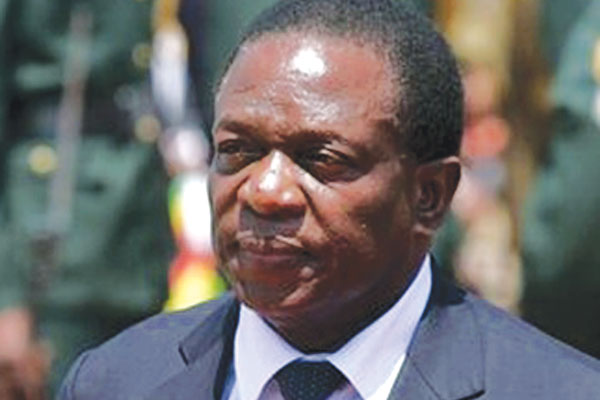
TWENTY-THREE-YEAR-OLD Esnath Naison smiles at the sight of Vice-President Emmerson Mnangagwa, who had visited her in her tent at the Mozambican section of the Tongogara Refugee Camp in Chipinge last week.
BY OBEY MANAYITI
It was a rare sight for the refugees.
Many top-of-the-range vehicles drove towards the Mozambican section at the refugee camp, where women and children were ululating despite languishing in abject poverty.
“This is my present,” remarked Mnangagwa, while handing out a clean $20 bill to Naison, who had given birth the previous week.
This was after Public Service, Labour and Social Welfare minister Prisca Mupfumira had given Naison $10.
Naison, who fled the conflict in Mozambique to settle at the camp, could not hide her joy.
About 1 000 people from Mozambique are at the refugee camp, while thousands more are living in the nearby Chipinge and Nyanga districts.
- Chamisa under fire over US$120K donation
- Mavhunga puts DeMbare into Chibuku quarterfinals
- Pension funds bet on Cabora Bassa oilfields
- Councils defy govt fire tender directive
Keep Reading
Women bear the brunt of conflict, with the majority ending up taking care of children in hostile conditions, as their partners fight in endless wars.
At the Tongogara Refugee Camp, there are thousands of women with heart-breaking tales on what forced them to travel thousands of kilometres in search of peace.
Olinda Kasongo (not her real name), who also stays at the camp, is already a mother at 16.
She arrived in Zimbabwe two years ago with some of her relatives after the Mai-Mai rebel group in the Democratic Republic of Congo (DRC) pounced on her family and killed her parents and brother in the most of brutal ways.
“I remember, it was during the night and we were sleeping, when the Mai-Mai people came to our house hunting for my father,” Kasongo said.
“We were all woken up and we watched as they killed him.
“My mother and everyone else cried. They gang raped my mother and then killed her. Then they turned on me and raped me too before killing my brother.
“I fell pregnant. Shortly after the incident, we fled, as they had promised that they will be back for us.
“We came to Zimbabwe in a huge truck. I gave birth here in Zimbabwe and I have my child in this refugee camp.”
Kasongo said although she was traumatised by the experience, she has taken comfort in the peace in Zimbabwe.
“This place is peaceful and I don’t wish to get back to DRC. Those people are waiting for us and if we go, we will die. At least we have settled here,” she said.
United Nations High Commissioner for Refugees (UNHCR) country representative, Robert Tibagwa said they are working on specific programmes targeting women, particularly focusing on counselling and income-generating projects.
“We have teams in the camp that look after this aspect to recognise women, who are traumatised, so that they can be assisted,” he said.
“We have competent staff that does this work, offering counselling and finding solutions to the people that suffer violence.
“First, we make sure that women are well represented. For example, in leadership positions, we insist that half of the representatives must be women.” Tibagwa said some projects were specifically reserved for female-headed households.
“We put them in income-generating projects ahead of male-headed households,” he explained.
“We have programmes targeting gender-based violence and we sensitise the community and the men and women not to engage in gender-based violence.”
Mnangagwa said the government would try to uplift their welfare through assisting with land and agricultural inputs.
“We have the seen how you are living here and we will try to improve your living conditions,” he said.
“Here in Zimbabwe, we don’t want lazy people.
“We will give you inputs so that you plough and get food.”
Refugees’ representative, Oredi Media said although their lives have been shattered in many ways, they were grateful that the government of Zimbabwe and UNHCR were taking good care of them.











